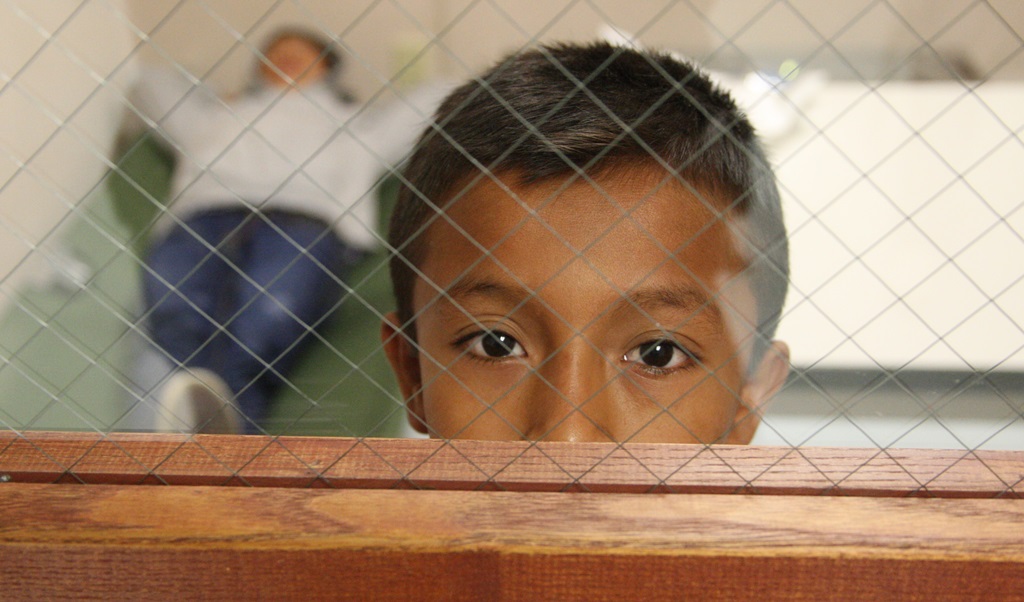Flores Settlement Agreement: The Department of Justice asked a court to partially terminate the decades-old agreement that protects the rights of immigrant children earlier this month.
The government argues that the Flores Settlement Agreement is no longer needed because a new Department of Health and Human Services regulation finalized on April 30 will provide sufficient protections to immigrant children in HHS care. Advocates fear that the end of the agreement and decades of oversight by Flores counsel could put children in danger.
Because the new rule only applies to HHS, the government only seeks to terminate the parts of the agreement that relate to children in HHS custody. Last December, the American Immigration Council was one of nearly 200 organizations that signed on to a set of public comments on the proposed rule, submitted on behalf of groups advocating for unaccompanied immigrant children, immigrants, and individuals with disabilities.
What is the Flores Settlement Agreement?
The Flores Settlement Agreement came out of years of litigation brought by a class of immigrant children who had been indefinitely detained in inhumane conditions by the former Immigration and Naturalization Service agency. The settlement went into effect in 1997 and is currently overseen by Judge Dolly Gee of the U.S. District Court for the Central District of California. Together with the Trafficking Victims Protection Reauthorization Act of 2008, it sets the standards for the detention, release, and treatment of immigrant children in federal government custody.
While Flores allows the government to publish regulations to implement and replace the agreement, the regulations must match the spirit and terms of the agreement.
What do the new regulations say?
While the new HHS regulations offer some important protections to immigrant children, such as guaranteeing access to an abortion while in ORR custody, advocates say they fall short in several key ways. The government argues that the rule “exceeds” the settlement’s requirements while “necessarily taking] a modified approach in light of substantially changed circumstances since 1997.”
Under the “modified approach,” ORR will allow immigrant children to be detained in unlicensed facilities in certain states, so long as the facilities meet state standards and pass ORR inspections. The government argues that the decision was necessary after Texas and Florida’s governors issued orders preventing their states from licensing facilities that house immigrant children in federal custody. However, state licensing is a core component of the agreement and housing children in unlicensed facilities leaves them vulnerable to abuse and mistreatment.
Another important change is the regulation’s creation of the Unaccompanied Children Office of the Ombuds, which will allow children and other stakeholders to raise concerns regarding ORR policies and practices. The office will also conduct site visits and publish reports. Advocates welcomed the creation of the Ombuds Office but worry the office lacks oversight power and will not report to Congress.
These concerns are especially salient because if the FSA is terminated as to HHS, Flores counsel will no longer provide critical oversight over ORR shelters through site visits and meetings with detained children. This could create a lack of transparency about shelter conditions and whether children’s rights are being safeguarded, especially for children detained in Florida and Texas.
Have there been prior attempts to terminate the agreement?
The government previously tried to terminate the agreement in 2019, after the Department of Homeland Security and HHS issued a final rule that attempted to dismantle many of the agreement’s protections.
The Trump-era regulation would have allowed the government to self-license its own family detention facilities instead of complying with the Flores settlement’s requirement that facilities housing immigrant children be state licensed. This would have allowed the government to indefinitely detain immigrant families, instead of releasing them within the 20-day limit imposed for children held in unlicensed facilities.
Judge Gee found that the 2019 regulations “largely defeat[ed]” the purpose of the agreement and blocked them from taking effect. On appeal, the Ninth Circuit ruled that parts of the regulation could go into effect, but the Biden administration ultimately scrapped plans to implement the 2019 rule, leaving Flores in place.
What happens next?
The regulations are scheduled to go into effect on July 1 unless a federal court blocks them, either partially or in full. Judge Gee will decide whether the rule sufficiently complies with HHS’ obligations under the settlement, such that the agreement can be terminated as it relates to HHS. Though these regulations are a vast improvement over the Trump-era rule, it remains to be seen whether the court will find that they can replace a critical agreement that has protected the rights of immigrant children for decades.
FILED UNDER: Office of Refugee Resettlement, unaccompanied children













